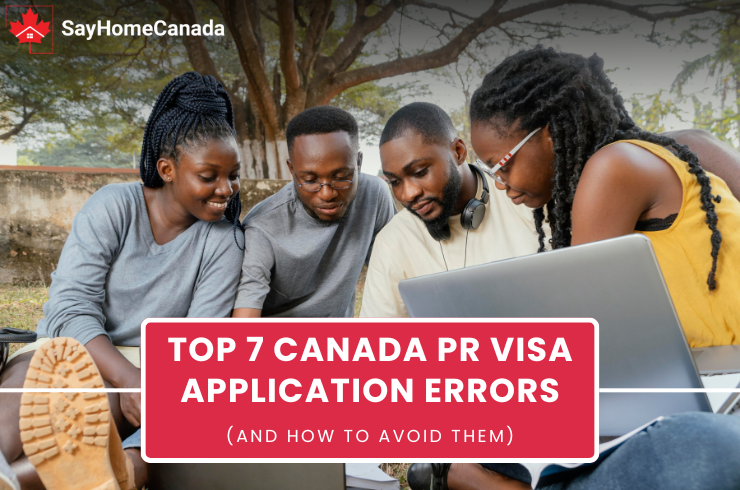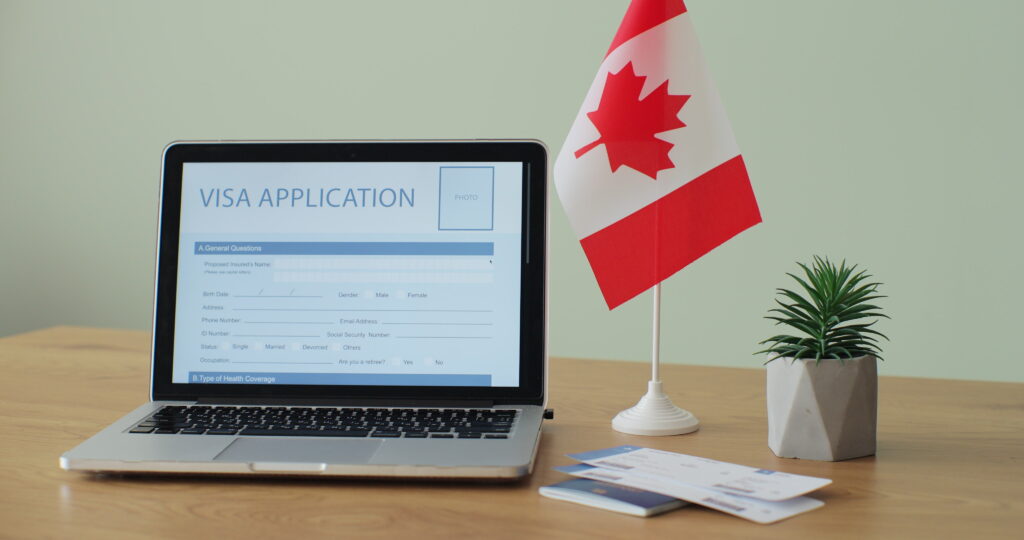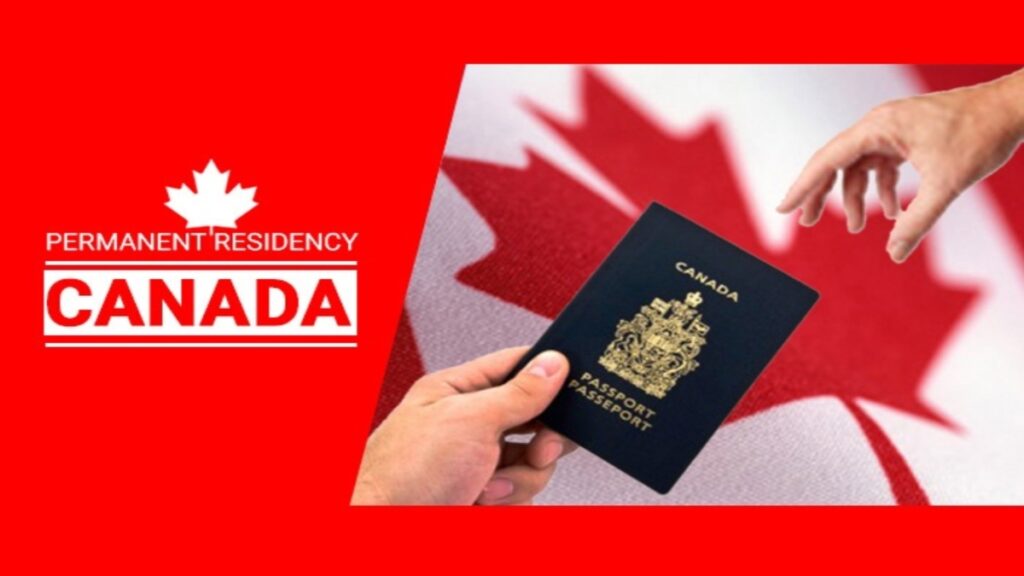
 PR
PR
Applying for Permanent Residence (PR) in Canada can be complex, especially for applicants from Nigeria, Ghana, India, and Cameroon. Many people dream of building a new life in Canada, but even small mistakes in the PR application process can lead to delays or denials. In this guide, we’ll cover the top 7 common mistakes in the Canada PR visa application and provide practical tips to avoid them. This guide will help you navigate the process with confidence and increase your chances of success.
One of the most frequent mistakes in the Canada PR process is providing incorrect or incomplete information. Simple errors like misspelled names, incorrect dates, or missing documents can raise red flags. Inconsistent information across documents—like a discrepancy between your job title on your work history and in your reference letter—can lead to delays or even rejections.
How to Avoid It
Double-Check Everything: Before submitting any document, review all details to ensure they are correct. Ensure consistency across all documents, especially for your name, date of birth, job titles, and work history.
Organize Your Documents: Maintain a checklist of all required documents, such as identity proofs, educational certificates, and work experience letters.
Seek Professional Help: Consider consulting an immigration consultant who can review your application. They’ll spot any inconsistencies and help ensure that each section is accurately filled out.
Tip for Nigerian, Ghanaian, Indian, and Cameroonian Applicants: Immigration consultants can help you verify if documents issued in your home country meet Canadian standards and requirements. This is especially useful if you have multiple names or complex documentation.

Rushing into the PR process without fully understanding the eligibility requirements is a common mistake. Canada offers several PR pathways, including Express Entry, Provincial Nominee Programs (PNPs), and Family Sponsorship. Each program has specific eligibility criteria, such as age limits, work experience requirements, language proficiency scores, and educational qualifications.
How to Avoid It
Research Thoroughly: Use resources like the IRCC’s eligibility tools to check if you meet the criteria for your chosen program.
Calculate Your CRS Score: If you’re applying through Express Entry, use the Comprehensive Ranking System (CRS) calculator on the IRCC website to see if your score is competitive.
Consult an Immigration Professional: An immigration expert can evaluate your profile against Canada’s various immigration streams to find the best fit for your skills and goals.
Tip for Applicants from Cameroon, Nigeria, Ghana, and India: Countries with larger applicant pools, like Nigeria and India, face intense competition for PR. Meeting eligibility is critical, but so is exceeding the minimum requirements wherever possible—such as achieving a higher language score or gaining additional work experience—to improve your chances.
Your NOC code categorizes your job based on duties and skills, and it plays a vital role in determining your eligibility for certain immigration programs. A common mistake is selecting an NOC code that matches your job title but not your actual responsibilities, which can lead to complications.
How to Avoid It
Focus on Job Duties, Not Title: Read through the NOC descriptions on the IRCC website and choose the code that best aligns with your job responsibilities, even if the title doesn’t exactly match.
Align with Reference Letters: Make sure your reference letters detail duties that align with your chosen NOC code.
Seek Professional Advice: If unsure, consult an immigration professional to confirm you’ve selected the right NOC.
Tip for International Applicants: Misclassifying your job can affect your CRS score or even disqualify you from some programs. This is especially important for those in high-demand professions—such as IT professionals from India, healthcare workers from Nigeria, and engineers from Ghana—where accurate representation of job duties is critical for eligibility.
Language proficiency is a crucial factor in Canada’s immigration process, especially for applicants applying through Express Entry. Achieving the required scores on tests like the IELTS for English or the TEF for French is essential.
How to Avoid It
Check Required Scores: Review the minimum language scores needed for your PR program, as each stream has different requirements.
Prepare and Practice: Take language preparation courses or practice tests to increase your confidence and performance on the test.
Aim Higher than the Minimum: Scoring above the minimum can give your CRS score a significant boost, which is especially important for highly competitive pools.
Tip for Nigerian, Ghanaian, Indian, and Cameroonian Applicants: Non-native English or French speakers can benefit from language classes or tutoring to improve test scores. Achieving high scores can be especially advantageous, as it strengthens your CRS score, improving your selection chances.

Canada’s immigration authorities require proof of funds to ensure that you and any dependents can support yourselves upon arrival. This is a crucial requirement for PR applicants under the Express Entry system and other economic immigration programs.
How to Avoid It
Prepare Valid Financial Statements: Gather bank statements, investment records, or fixed deposit certificates to show you meet the minimum fund requirement. Make sure these documents are in your name or jointly with a spouse.
Check the Latest Fund Requirements: The minimum fund requirement changes, so verify the current amount needed based on your family size on the IRCC website.
Keep Documents Up-to-Date: Ensure your financial documents are recent (usually within 6 months) and meet IRCC’s specific requirements.
Tip for International Applicants: In some countries, like Nigeria and Ghana, only certain types of financial assets are acceptable. Avoid using restricted assets, and ensure your documentation is clear and easy for IRCC officers to understand.
Canada’s immigration processes are time-sensitive, with strict deadlines for submitting documents, responding to requests, and keeping certain records up-to-date. Failing to meet these deadlines or submitting expired documents can result in delays or rejections.
How to Avoid It
Track Important Dates: Use a calendar or reminder app to keep track of deadlines, such as for biometrics, document submission, and medical exams.
Monitor Document Validity: Ensure critical documents like police certificates, medical exams, and passports are valid when submitting your application.
Stay Organized: Maintain a file or digital folder for all your application documents, along with their expiry dates and submission deadlines.
Tip for Applicants from Cameroon, Ghana, India, and Nigeria: Renew key documents like police certificates and medical exams ahead of time to avoid last-minute rushes. For applicants in locations with longer wait times for document renewals, plan ahead to avoid delays.

Canada’s immigration authorities regularly update forms and requirements. Using an outdated form or missing updates to document requirements can lead to processing delays or rejections.
How to Avoid It
Download Forms Directly from the IRCC Website: Avoid using forms from third-party sites, as they may be outdated.
Double-Check for Updates: If you’re preparing your application over several months, revisit the IRCC website before submitting to confirm you have the latest forms.
Review Instructions Carefully: Make sure you’re following the latest instructions, as requirements for forms and documentation can change.
Tip for International Applicants: Staying updated on form changes is particularly important if you’re working on your application over an extended period. Always use the latest version available on the IRCC website.
The journey to Canadian PR can be complex, but being aware of these common mistakes can help you navigate the process more smoothly. Preparation, attention to detail, and staying informed are key to a successful application.
Before submitting your Canada PR application, take the time to carefully review each section. If you’re unsure about any step in the process, consider consulting with an immigration consultant, like SayHomeCanada, who can provide tailored guidance based on your background and needs.
Ready to get expert help? Contact SayHomeCanada for professional assistance and avoid costly mistakes that could delay your Canadian dream.
One of the most frequent errors is providing incomplete or inaccurate information, such as missing documents or incorrect personal details. To avoid this, double-check all forms and documents for accuracy.
Need help ensuring your application is accurate? Contact SayHomeCanada for expert assistance!
Yes, errors in your Express Entry Visa application, like incorrect information or an inaccurate CRS score, can result in rejection. Thoroughly review your application and CRS points to avoid mistakes.
Want professional guidance for your Express Entry Visa? Reach out to SayHomeCanada for assistance!
Errors often occur when applicants rush or fail to follow instructions. Always use the most current application forms from the IRCC website and keep track of deadlines for document submissions.
Need help submitting a flawless IRCC PR application? Let SayHomeCanada guide you through the process!
Common errors include providing inconsistent information between your online profile and submitted documents. Ensure all job details match perfectly with reference letters.
Looking for expert help? Trust SayHomeCanada to guide you through the PR process!
Ensure you meet all eligibility criteria, provide accurate supporting documents, and use updated forms. Seek professional advice if needed.
Want a seamless PR application experience? Contact SayHomeCanada for personalized assistance! A
Thank you for the response .
Let's Connect